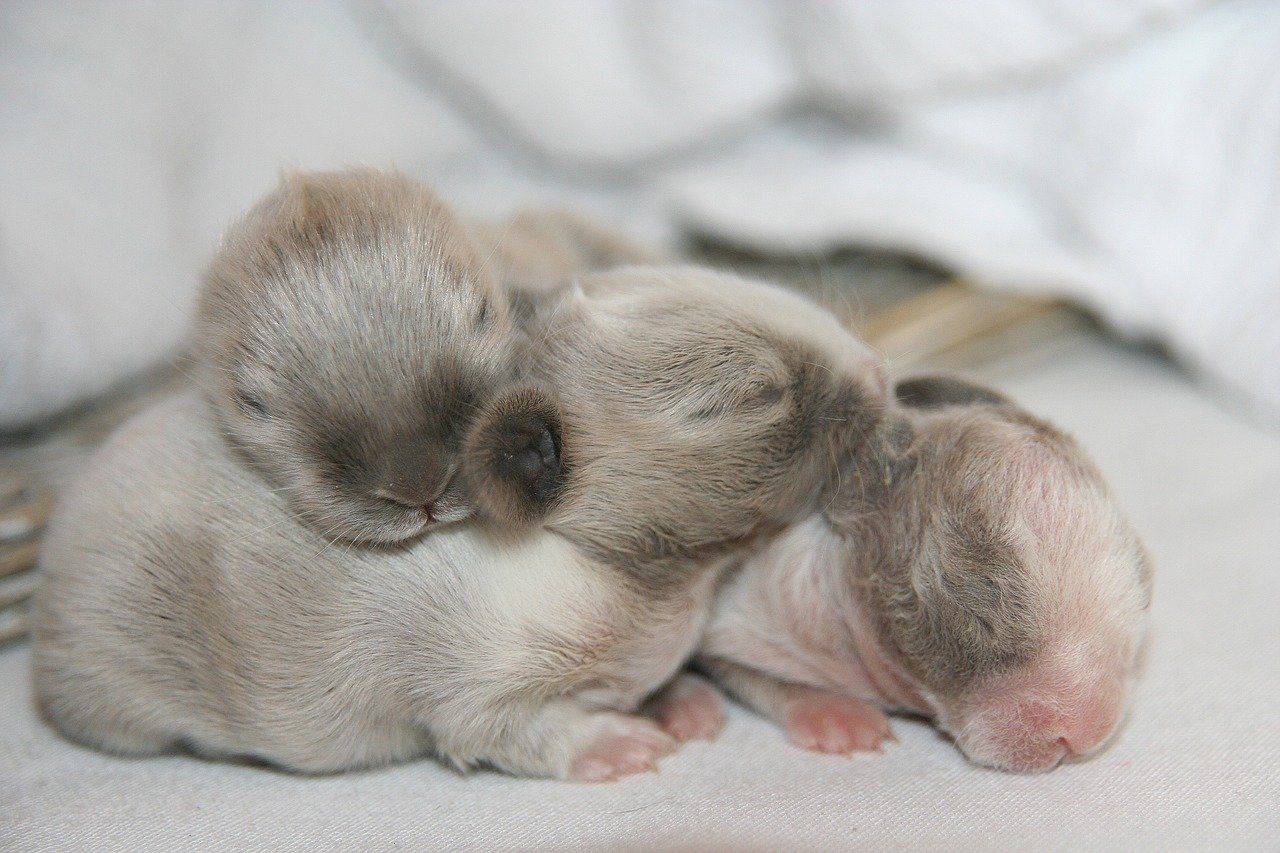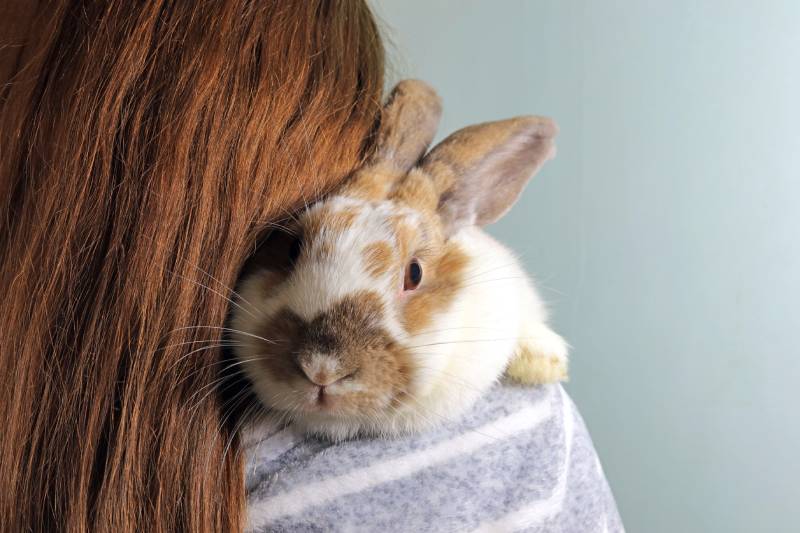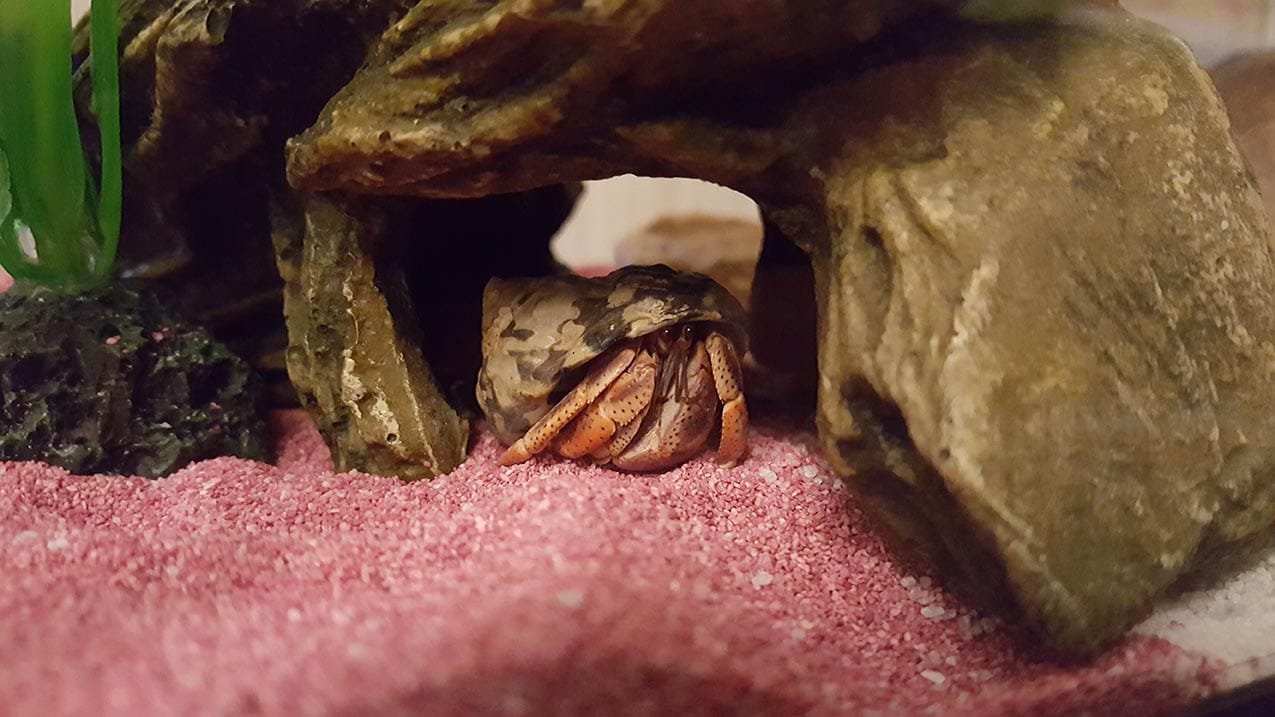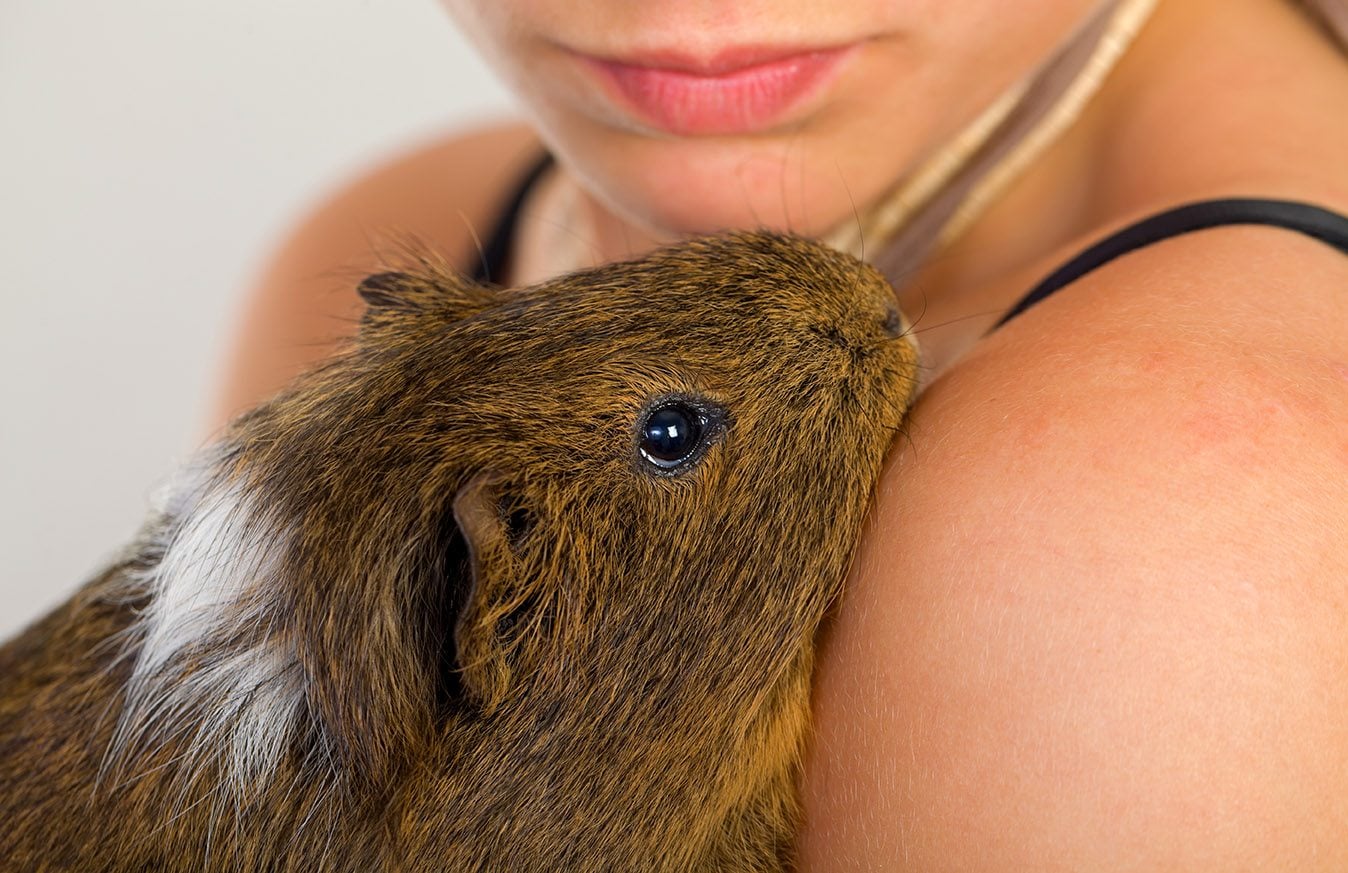Click to Skip Ahead
Rabbits make excellent pets. They’re relatively inexpensive to care for, can be affectionate to their owners, and are fascinating to watch when they’re free to explore and run. However, some of their actions can be concerning. Many rabbit owners are surprised that a mother rabbit will eat her kits since rabbits are herbivores. While this happens rarely, it’s still something you have to be prepared for. Below, we’ll discuss why a mother rabbit sometimes eats her young and how to stop the behavior, so join us.

Why Do Mother Rabbits Eat Their Babies?
While mother rabbits have been known to eat their young, it’s not a cause for panic. It happens rarely and is usually caused by mothers who are stressed or have an illness. If she thinks she can’t properly care for her kits, she will eat them.
Here are a few other reasons that a mother rabbit will eat her young:
- Dietary problems
- Survival instinct
- The kits are weak
- Stillbirth
- Stress and anxiety
- Escape predation
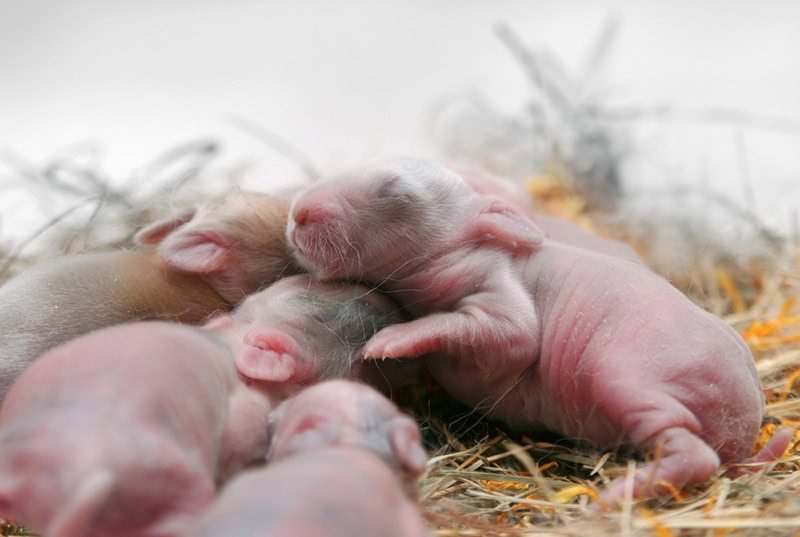
 The 6 Ways to Prevent a Rabbit From Eating Her Babies
The 6 Ways to Prevent a Rabbit From Eating Her Babies
Now that you know why mother rabbits sometimes eat their young, we’ll give you a few tips for trying to prevent it from happening.
1. Give Her a Protein and Nutrient-Rich Diet
One of the best ways to keep your rabbit from eating her kits is to ensure she has a protein and nutrient-rich diet during her pregnancy. Feeding the mother more during the last few weeks of pregnancy is also essential.
Ensure the mother rabbit’s diet consists of plenty of alfalfa hay and leafy greens. The pregnancy and delivery will be hard on the rabbit, so you want to increase her portions during the last weeks. Of course, you should always have fresh, clean water in the hutch.
2. Provide Security and a Calm Environment
As with human females, the mother rabbit will go through quite a few hormonal changes when they are expecting. Providing a calm, reassuring, secure environment for the doe is essential so she’s not stressed.
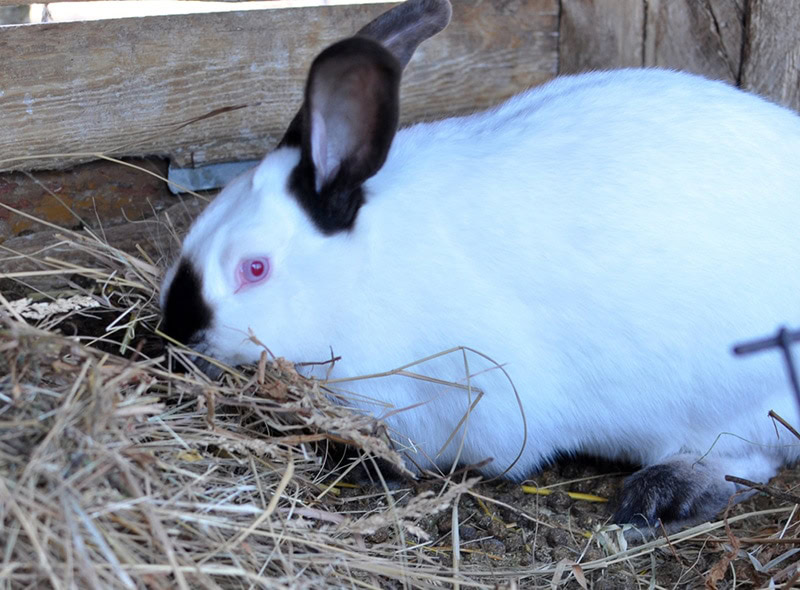
3. Keep a Close Eye on the Mother After She Delivers
You can expect your mother rabbit to eat the placenta after she gives birth. Rabbits do this because the scent of the placenta will attract predators. If the mother is inexperienced or too young, she may think that one of her kits is the placenta as well and cannibalize the baby. Make sure you watch her closely and stop her if she eats one of the babies instead of the placenta.
4. Distract the Mother Rabbit With Toys or Food
In most cases, the urge to eat their young doesn’t last long with rabbits. However, if your rabbit still wants to make her kits dinner, try distracting her with food or toys. Giving her food or toys to play with will distract her attention from her newborn kits.
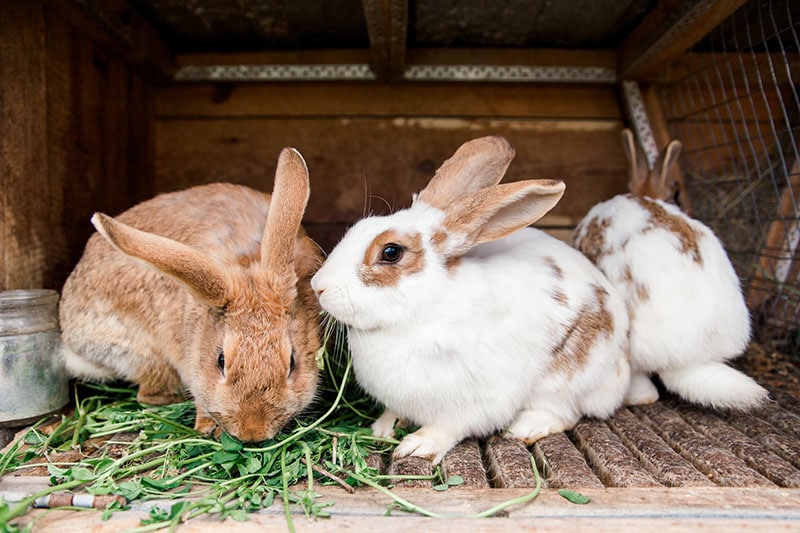
5. Refrain From Breeding Young Rabbits
The best way to prevent your rabbit from eating her young is never to breed rabbits that haven’t matured. While there’s no guarantee that your mature rabbit won’t eat her babies, you stand a greater chance of it not happening if the rabbit is mature. However, when a doe is mature enough to mate varies by species, so you might want to consult your vet.
6. Separate the Mother From the Kits
If none of the steps above work for keeping your rabbit from eating her young, it’s time to separate the doe from the kits. You can try reintroducing the rabbit to her young after 24 hours; if the behavior persists, you might need to raise the kits to adulthood on your own. You can put her in the cage to feed the kits once a day, but be there to supervise the feeding.
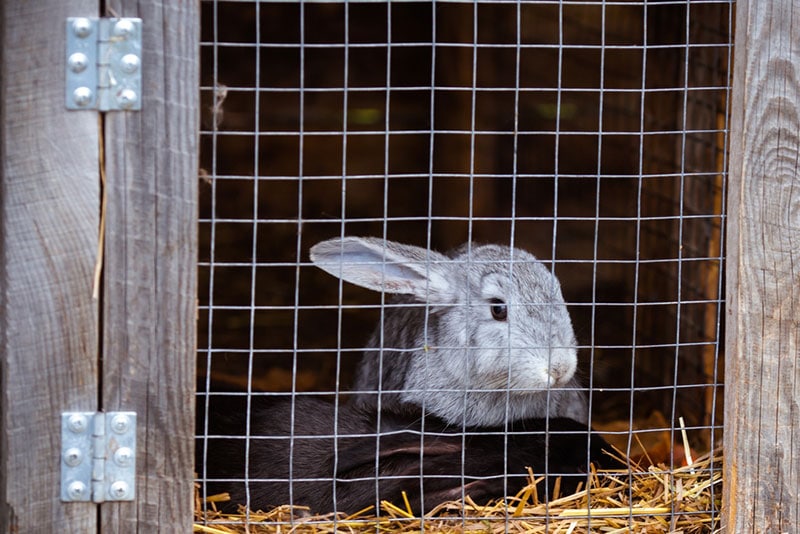
 Final Thoughts
Final Thoughts
While mother rabbits rarely eat their young, it can happen, so it’s something you must be on the lookout for when your female has babies. A rabbit will eat her young for several reasons, including stress, unhealthy kits, and dietary problems.
If the methods above fail to work to keep your rabbit from cannibalizing her babies, you need to separate her from her kits. You can contact your vet to find out how to take care of the babies on your own until they are adults. Until then, keep a close eye on your rabbits and try the steps above to keep the babies safe.
- Related Read: Most Aggressive Rabbit Breeds
Featured Image Credit: auenleben, Pixabay
